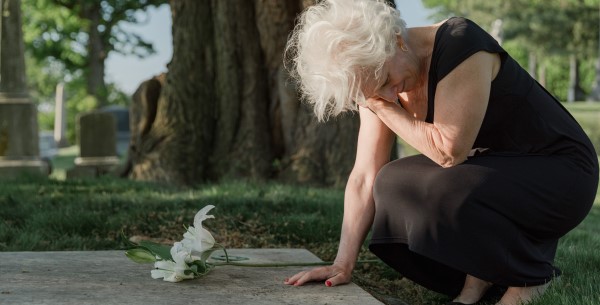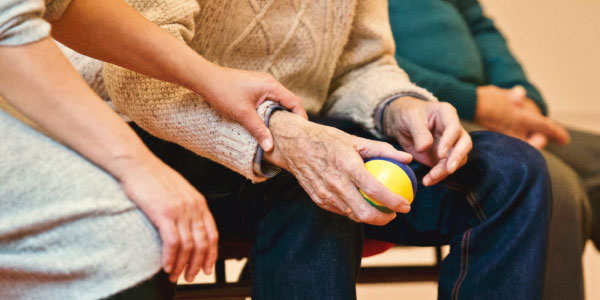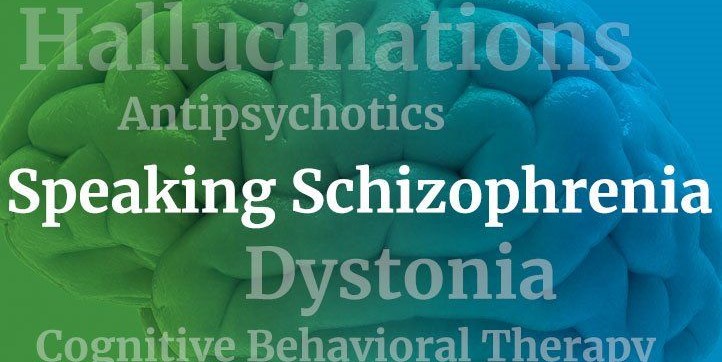Related Mental Health Concerns
After a death in the family, the time comes when grieving family members begin to re-enter the routines of everyday life.
Clinical depression is a common and serious medical illness that can be effectively treated. The risk of clinical depression is often higher in individuals with serious medical illnesses, such as heart disease, stroke, cancer and diabetes.
A meaningful chat with your physician could save your life—or at least help lengthen it. Even in this age of advanced scanning technology, your ability to clearly describe your health problems—and help your doctor understand them— is critical to getting an accurate diagnosis.
Losing a loved one under any circumstances is always devastating, but an abrupt loss of a loved one to a drug overdose can be especially difficult.
Depression can affect men differently than it does women. When depression occurs in men, it may be more severe than in women and can be masked by unhealthy coping behavior.
Contrary to popular belief, clinical depression is not a “normal part of being a woman” nor is it a “female weakness.” Depressive illnesses are serious medical illnesses that affect more than 19 million American adults age 18 and over each year.
Dialectical Behavior Therapy (DBT) is a treatment designed specifically for individuals with self-harm behaviors, such as self-cutting, suicide thoughts, urges to suicide, and suicide attempts.
There are three types of emotional responses that can seem similar but are, in fact, quite different.
In psychological terms, enabling is a well-meant attempt to fix a problem that ends up worsening or perpetuating it.
Learn about the rates of mental illness based on familial relationship.
The loss of a loved one is life’s most stressful event and can cause a major emotional crisis. After the death of someone you love, you experience bereavement, which literally means "to be deprived by death."
A few decades ago, children often didn’t attend funerals. The thinking was that they should be sheltered from the pain of losing a loved one. And as Americans started living longer, the need to even broach the subject of death was delayed because many grandparents survived deep into their golden years.
When you’re having a panic attack, it might feel like you’re drowning. You feel like you can’t breathe and your chest is constricted.
Misconceptions about mental illness are pervasive, and the lack of understanding can have serious consequences for millions of people who have a psychiatric illness, according to the National Alliance for Research on Schizophrenia and Depression (NARSAD).
Myth 1: A woman of childbearing age is no more vulnerable to depression than at any other time in her life.
False. Women, who are twice as likely as men to be clinically depressed at some point in life, are most vulnerable to depression during their childbearing years.1
Some might think knowing of a loved one’s impending passing in advance somehow eases the pain, but anyone who’s experienced it would tell you it’s one of the most difficult challenges a person could ever face.
Psychotherapy isn’t as cut and dry as it may appear to some. You don’t just go in to an office and talk. You can do that with a friend. Psychotherapy includes the building of a professional relationship with boundaries and goals of the client to improve, learn, and grow.
When you or someone you know is diagnosed with schizophrenia or schizoaffective disorder, you’ll encounter many new terms and phrases. This glossary will walk you through condition-related and medical jargon so you can understand what’s happening and how to get the most effective treatment for schizophrenia.
Self-injury is the act of deliberately harming your own body, such as cutting or burning yourself. It's not meant as a suicide attempt. Rather, self-injury is an unhealthy way to cope with emotional pain, intense anger and frustration.
Sexual addiction is any sexually-related, compulsive behavior which interferes with normal living and causes severe stress on family, friends, loved ones, and one's work environment.
The goal of therapy is to give you the tools and strategies for navigating whatever is going on in your life—from stress or relationship issues to managing a mental health diagnosis. But a therapist isn't going to just hand over some life-changing advice and call it a day.
As an anger management specialist, I’ve witnessed the powerful impact that shame can have in fueling anger arousal as an adult.
Everyone gets down from time to time, but feelings of sadness that last two or more weeks may be a sign of clinical depression. It is a real and serious health condition that affects more than 20 million American adults each year.
Everyone experiences sadness from time to time. But depression lasts longer, interferes with daily life and can cause physical pain. Fortunately, depression is highly treatable, and getting effective treatment is crucial. This question-and answer guide explains depression and how it can be treated successfully.
Cognitive behavioral therapy (CBT) is a common type of talk therapy (psychotherapy). You work with a mental health counselor (psychotherapist or therapist) in a structured way, attending a limited number of sessions.














































